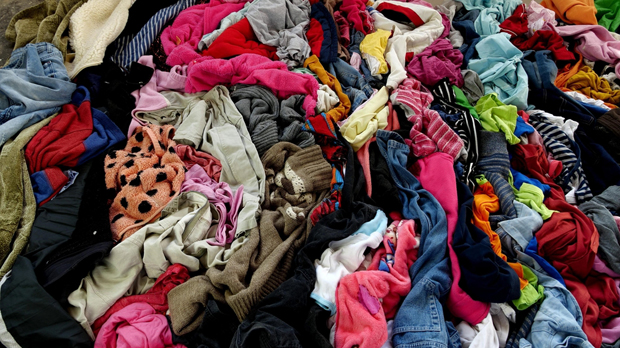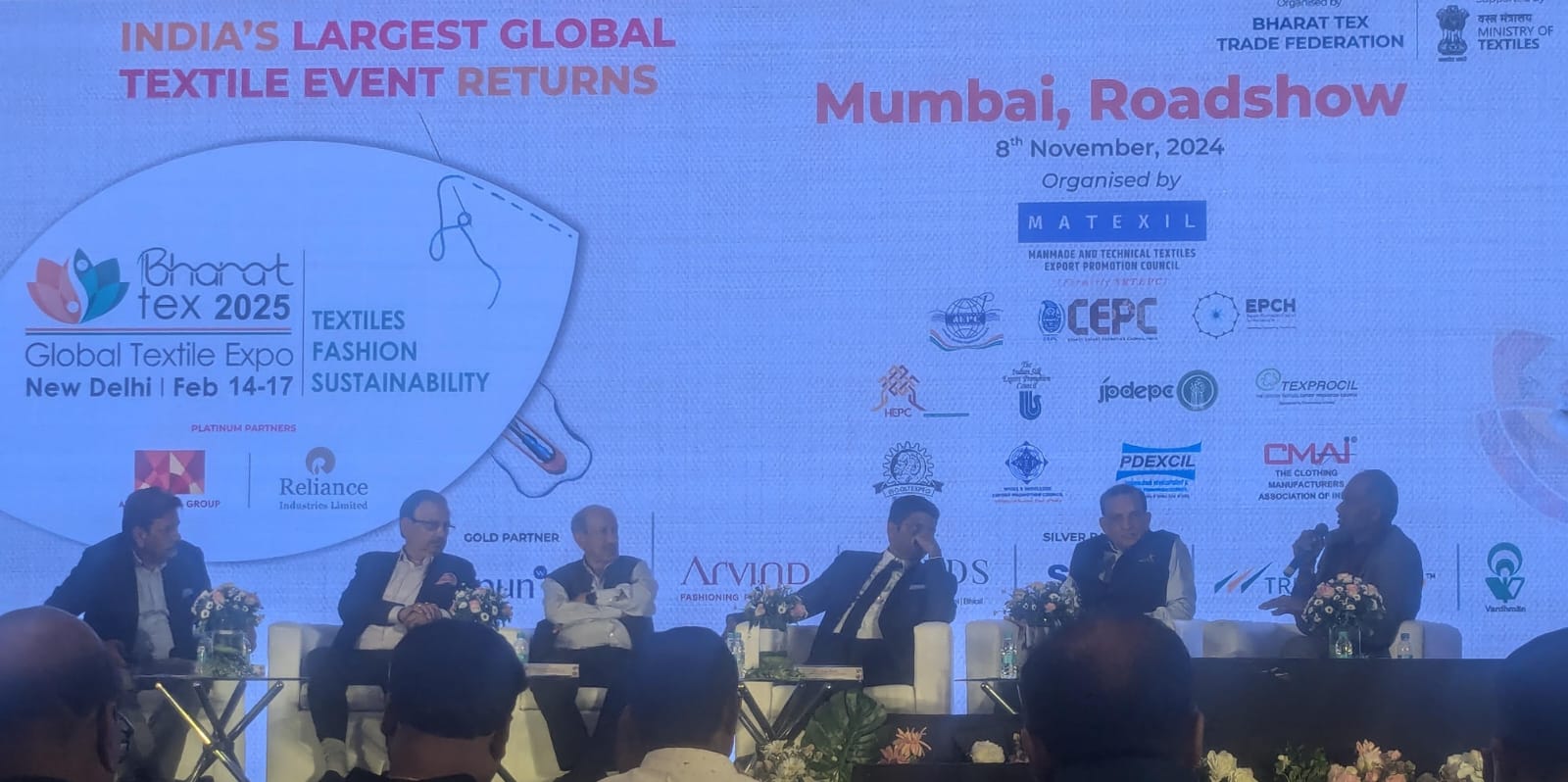FW
RE&UP Recycling Technologies, an innovator in circular technology, is revolutionizing textile recycling with its Next-Gen Cotton and Polyester, which deliver virgin fiber performance with sustainable benefits. The company recently won the ITMF Start-up Award 2024 at the ITMF Annual Conference in Samarkand, Uzbekistan, underscoring its impact on sustainable textile solutions.
As RE&UP becomes a corporate member of the International Textile Manufacturers Federation (ITMF), ITMF Director General Christian Schindler highlighted the collaboration's significance, noting the importance of RE&UP’s recycling technology for industry-wide circularity goals.
RE&UP’s General Manager, Andreas Dorner, emphasized the benefits of ITMF membership, including access to valuable global industry data and connections across the textile value chain. This partnership strengthens RE&UP’s mission to drive sustainability and scale circular practices within the global textile sector.
IDE House of Brands, the largest privately-owned promotional products supplier in the Nordics, has launched its first Bluesign certified products within its sports and leisure brand, iwear. This marks IDE as the world’s first promotional products company certified to produce Bluesign Products, introducing items crafted from 100 per cent Bluesign Approved fabrics in its Autumn/Winter 2024 collection.
This step underscores IDE’s commitment to sustainability by promoting clean chemical management and product safety in its supply chain. Lasse Lauritzen, Founder and Chairman of IDE, emphasized that joining the Bluesign network enables them to strengthen environmental performance and increase safety standards, aligning with the company’s core values.
Bluesign CEO, Daniel Rufenacht, commended IDE's leadership, highlighting their impact on industry standards by integrating environmentally responsible production practices into high-quality product lines. This milestone reflects IDE’s ongoing role in driving sustainability, setting a new standard for the promotional products industry.
Australian department store chain Myer has signed a deal worth A$863.8 million ($568.38 million) to acquire the apparel brands of Premier Investments. This acquisition includes transferringthe ownership of the company’s popular brands including Just Jeans, Jay Jays, Portmans, Jacqui E, and Dotti.
The agreement will make Premier-owned Century Plaza Investments largest shareholder in Myer with a 26.8 per cent stake. Premier will also investA$82 million in Myer as a part of the transaction.
Following the transaction, Solomon Lew, Head, Premier, will join Myer's board, marking a pivotal turn in a rivalry dating back to 2017, when Lew began acquiring Myer shares while critici Sing its leadership for poor performance.
Olivia Wirth, Chairperson, Myer will continue to lead the company after the deal, which was initiated in June when Myer approached Premier about combining their apparel divisions.
With its annual sales declining by 2.9 per cent to A$3.3 million and profit decreasing by 26 per cent, Myer has been navigating a challenging retail environment for quite some time.
New Mexico based Green Theme Technologies (GTT), a key player in sustainable materials science, has closed a $6 million Series C funding round led by Pangaea Ventures and Cottonwood Technology Ventures. This new investment will fuel GTT’s mission to revolutionize the textile sector with its PFAS-free, water-free EMPEL technology, which offers eco-friendly, high-performance alternatives to conventional textile treatments by eliminating harmful chemicals and significantly reducing water usage.
The funding will enable GTT to expand development, scale production, and meet rising demand for sustainable solutions in the apparel, footwear, and military sectors. Additionally, GTT plans to enhance its research and development efforts to refine its offerings and increase global impact.
CEO Tom Lopez highlighted the importance of partnering with investors committed to environmental sustainability, emphasizing that the new funding will accelerate GTT’s growth and technological progress. He noted that GTT’s solutions enable manufacturers to produce high-performance products in a more sustainable way, reinforcing the company’s mission to expand its positive impact.
Lead investor Pangaea Ventures, recognized for its focus on sustainable ‘hard tech’ innovations, praised GTT’s approach to responsible manufacturing. General Partner Chris Erickson highlighted GTT’s innovative solutions, which align with Pangaea’s goal of promoting planetary health. Cottonwood Technology Ventures echoed this support, with Managing Partner Dave Blivin commending GTT’s PFAS-free advancements.
This funding marks a pivotal step for GTT as it aims to meet industry demands for sustainable manufacturing without compromising performance, reinforcing its position as a leader in eco-conscious textile innovation.
Los-Angeles-based footwear brand Skechers has increased its full-guidance for fiscal year 2024 and forecasts sales to range between $8.925 billion - $8.975 billion during the year.
The brand reported record-breaking results in Q3, FY24 with sales rising by 15.9 per cent to $2.35 billion, on the back of high growth across all markets. Its international sales rose by 16.4 per cent while domestic sales grew by 15.3 per cent during the quarter.
In Q3, FY24, Skechers’ wholesale sales expanded by 20.6 per cent. These included a 21.6 per cent rise in sales from the Americas and 30.9 per cent growth in sales in the EMEA region. The brand’s sales in the APAC increased by 5.1 per cent.
During the quarter, Skechers; net earnings increased to $193.2 million compared to net earnings of $145.4 million in the corresponding quarter last year.
Robert Greenberg, CEO, says, the significant growth achieved by the company in Q3, FY24 can be attributed to its policy of offering the right product at the right price and ensuring availability at locations where consumers want to shop.
A unique value proposition for the brand’s partners, Skecher’s products offer style, comfort, quality and innovation at a reasonable price to its consumers.

Europe's once-thriving textile sorting and recycling sector is facing an unprecedented crisis, surpassing even the challenges faced during the COVID-19 pandemic. Numerous global disruptions , including the war in Ukraine, logistical hurdles in Africa, and the relentless rise of fast fashion, has plunged the industry into a turmoil, leaving the industry struggling for survival and threatening to unravel years of progress towards a circular textile economy.
Issues of oversupply and falling prices
The crisis is characterized by a glut of used textiles and a sharp decline in demand from traditional export markets. Data reveals a shrinking trade in used textiles between the EU and non-EU countries, decreasing from 464,993 tons in 2022 to 430,185 tons in 2023. This decline is highlighted by Germany's exports of used textiles to Ghana, a key export market, which fell from 7911.2 tons in 2020 to 4532.9 tons in 2023.
Compounding the problem is the low demand for recycled materials. Global production of recycled cotton in 2023 was estimated at 319,000 tons, compared to 24.4 million tons of virgin cotton produced. This disparity highlights the uphill battle faced by the recycling industry. Oversupply has led to a drop in prices for second-hand textiles, while collection, sorting, and recycling costs have grown. Since spring 2024, the prices for sorted second-hand garments have fallen below processing costs, creating severe cash flow problems for sorting operators. Warehouses are overflowing, raising the specter of textile waste incineration.
The Netherlands for example, a leader in textile recycling, is feeling the impact acutely. Sorting companies are operating at a loss, with warehouses overflowing and the threat of incineration looming over unsold textiles. The Dutch government is considering emergency measures, including financial support and a potential tax on virgin textile materials, to avert a complete collapse of the sector.
A domino effect
The crisis is rippling through the entire textile recycling chain. Municipalities face growing processing costs, potentially leading to higher waste disposal fees for residents. Downstream players, such as tearing and spinning mills, are also struggling, resulting in significant job losses. Take German textile recycling company Soex for example, has reported a 30 per cent drop in revenues in 2024 due to the crisis. They are struggling to find buyers for their sorted textiles and have been forced to reduce their workforce. Similarly, the Belgian sorting operator, Terre, has seen its warehouse capacity reach limit. They are facing pressure to incinerate textile waste due to the lack of viable export markets.
Need for urgent action
Industry experts and policymakers agree that immediate action is crucial to prevent widespread bankruptcies and safeguard the future of textile recycling in Europe.
Short-term solutions include financial incentives. Many EU companies that contribute to a sustainable circular textile chain need immediate financial support to weather the storm. And targeted investment in recycling technologies and infrastructure is essential, particularly for municipalities grappling with textile waste stagnation.
Mid-term strategies include measures to increase demand for recycled textiles, such as mandatory recycled content in new products, are crucial. Europe also needs to significantly expand its recycling capacity to handle the growing volume of textile waste. And ecodesign requirements favoring sustainable materials can further incentivize the use of recycled textiles.
In the long term the EU's upcoming Circular Economy Act presents an opportunity to enshrine ambitious targets for textile recycling and create a level playing field for recycled and virgin materials. A future Clean Industrial Deal could provide further support for innovation and investment in the textile recycling sector. Taxation is another way. Governments need to explore the possibility of introducing a tax on new, petroleum-based materials and lowering VAT on textile repair, reuse, and recycling activities.
The stakes are high, and without urgent and decisive action, Europe risks undermining its climate goals and jeopardizing the future of its textile sorting and recycling industry. The crisis presents a critical juncture – a chance to reimagine and reinvigorate the sector, or risk losing years of progress towards a more sustainable and circular textile economy.
Some of the world’s leading fashion companies are collaborating with the UK-based biomaterials company PACTto incorporate the company’s new scalable biomaterial made from natural collagen into their collections.
According to Yudi Ding, CEO, PACT, fashion companies can save a significant amount of water by using this biomaterial titled, ‘Oval,’ in their collections. For instance, while other companies may require 1,800 gallons of water to manufacture just one pair of jeans and 400 gallons to produce a cotton t-shirt, Oval requires significantly less water, says Tech EU.
PACT is also building a 13, 820 sqft headquarters in Cambridge, England to ramp up its production capabilities and invest in further biomaterial breakthroughs. The facility includes a laboratory and pilot production facility.
PACT isn't the only company delving into the power of biomaterials. For instance, another Mexican company is creating a leather-like material out of nopal cactus leaves while a Brooklyn-based startup is developing faux leather out of shrimp shells.
A leading global home textiles manufacturer and a part of the $3.6 billion Welspun Group, Welspun Living Ltd (WLL) reported a 16 per cent rise in its consolidated revenue to Rs29,360 million during Q2, FY25.
In its primary segment, WLL's textile business grew by 15.3 per cent Y-o-Y to Rs27,128 million during Q2, FY25. The brand’s flooring business grew by 2.9 per cent Y-o-Y to 2,498 million during the quarter. Emerging divisions, including Global Brands, Domestic Consumer, Advanced Textiles, and Flooring, grew by 22 percent in Q2, with the domestic segment showing a robust 20 percent increase.
WLL’s consolidated EBITDA for Q2 increased by 7.5 per cent Y-o-Y to Rs4,206 million (~$50.02 million) with a 14.3 percent margin. The brand’s textile segment recorded an EBITDA rise of 13.8 per cent in the quarter totaling to Rs3,742 million while the flooring business’s EBITDA rose by 9.5 per cent Y-o-Y to Rs220 million.
WLL’s profit after tax (PAT) was increased by 2.2 per cent to Rs2,010 million in Q2, FY25 while its net debt expanded to Rs18,323 million by Q2 FY25 from Rs15,734 million in Sep’23.
Notably, WLL launched a 4.6 MW solar energy project at its Telangana facility this year, supporting its commitment to 100 percent renewable energy by 2030. The company continues to be driven by innovation which contributes 23 percent to total sales.
With its emerging business segments growing by 22 per cent, WLL continues to align its operations on ESG principles positioning the company as a global leader in sustainable practices, highlights BK Goenka, Chairman.
At the recently concluded 5th International Textile & Leather Exhibition (TEXPO 2024) held at the Karachi Expo Centre, Trade Development Authority of Pakistan (TDAP) clinched deals worth over $910 million.
Attractingaround 527 foreign buyers from 60 countries, this high-profile eventfeatured 272 exhibitors. The three-day exhibition included 1,969 B2B meetings facilitated by TDAP and resulted in signing of 10 MoUs, positioning TEXPO as a vital platform for Pakistan’s textile sector growth and international partnerships.
Focused on fostering ties with non-traditional markets, TEXPO 2024 featured discussions on sustainability and innovation. The exhibition held key sessions on topics such as ‘Green Threads:
Weaving Sustainability into Pakistan’s Textile and Leather Sectors,’ led by Omar Hameed, Economic Minister from Brussels and Bianca Seidel, Bianca Seidel Consultancy. Another notable session, ‘From Waste to Worth: Circular Innovations in Pakistan,’ featured insights from Boudewijn MoI, Director, Bedding House, and Usman Khan, Advisor, REMIT.
The event concluded with a session titled, ‘Smart Moves: Transforming SMEs into Green Powerhouses,’ that included presentations by Yulia Bazhenova from GIZ, Cem Altan of the International Apparel Federation, Tayyab Naveed from UMT, and Aamir Chottani from Chottani Industries.
With strong international buyer interest and TDAP’s commitment to sustainable practices, TEXPO 2024 marks a significant milestone for Pakistan, bolstering its textile and leather sectors on the global stage.
In a meeting to monitor ongoing preparations for Bharat Tex 2025, Sardor Rustamboyev, Uzbekistan’s Ambassador to India and Pabitra Margherita, Union Minister of State for External Affairs and Textiles, India, discussed on the prospects to boost Uzbekistan's textile exports to India.
The conversation between the two leaders focused on strengthening collaboration in the textile sector and increasing the presence of Uzbek knitwear and other textile goods in India. Rustamboyev underscored Uzbekistan's recent advancements in textile and light industry reforms, emphasising the integration of modern technologies to manufacture high-quality, competitive products for the global market. The meeting aimed to facilitate business negotiations between industry leaders from both countries to foster deeper partnerships.
The two parties also reviewed Uzbekistan’s plans for Bharat Tex 2025, scheduled to be held in Feb’25 in India. The exhibition will include a dedicated showcase of Uzbekistan’s textile and light industry capabilities.












